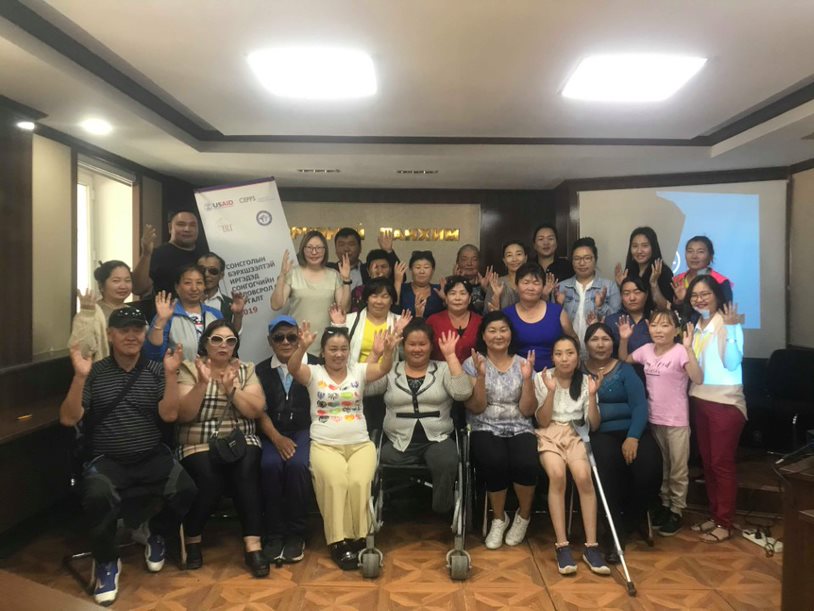
September 23 marks the International Day of Sign Languages, celebrating the linguistic identity and cultural diversity of deaf communities across the globe. At the International Republican Institute (IRI), we recognize that representative governance is a hallmark of healthy democracies, and that the empowerment of deaf communities and other marginalized groups is critical to advancing human freedom. In Mongolia, IRI works to elevate the priorities of the country’s nearly 12,000 deaf persons and encourage greater political participation and inclusion for all Mongolians.
In February 2016, the Mongolian State Great Khural (parliament) passed the Law on Human Rights of Persons with Disabilities, “…ensuring, enforcing and safeguarding equitable rights of persons with disabilities to participate in social life.” The law commits not only to the non-discrimination of persons with disabilities, but also includes measures to raise awareness and understanding; improve living and working conditions; and expand access to public infrastructure, transport, communication, employment, health, welfare, political, privacy and educational services.
According to an IRI poll released this week, there is widespread (91 percent) support for the political inclusion of people with disabilities across Mongolia. Yet despite such public backing, little headway has been made in implementing and enforcing the 2016 law. Institutional support and public awareness remain severely under-resourced, with Labor and Social Protection Minister S. Chinzorig recently acknowledging that not enough is being done to employ persons with disabilities nationwide. According to Nemekhbayar Batnasan, a former fellow for the democracy leadership program LEAD and Project Manager at the Deaf Information Center in Ulaanbaatar, “Little progress has been made toward ensuring equal rights to education, employment and health services for the deaf and hard-of-hearing community.”
Recognizing the limited support Mongolia’s deaf community receives for social and political inclusion, IRI has partnered with the Parent Teacher Association of Mongolia (PTAM), to expand the participation of deaf and hard-of-hearing persons in Mongolia’s political processes. Working in cooperation with the General Election Commission of Mongolia (GEC) with USAID funding and IRI support, PTAM conducted a series of election participation trainings for deaf community members. For many training participants, it was their first time engaging in a technical workshop or voter education program.
The training series reached 1,551 persons with hearing disabilities from across Mongolia, and enabled participants to access important voter education materials that had been previously unavailable to many in the community. This enabled participants to make more informed decisions about which candidates to support – as one trainee told us, “I participated in the elections because of the threat that social benefits may be cut, and the training helped me realize that choosing the right candidate depends on the voters’ choice.”
While the trainings specifically served persons identifying as deaf or hard-of-hearing, they have also brought the attention of Mongolia’s hearing population to the unique obstacles this community faces. For example, an official from the Dundgobi province’s governor’s office remarked that the trainings exposed to him the importance of delivering public services in sign language.
With an estimated 72 million deaf people worldwide, advocating for the rights and representation of the deaf community is a global imperative. By collaborating with local organizations such as PTAM, IRI is proud to contribute to the empowerment of deaf persons in Mongolia so that they can participate fully in the political life of their country.
Top